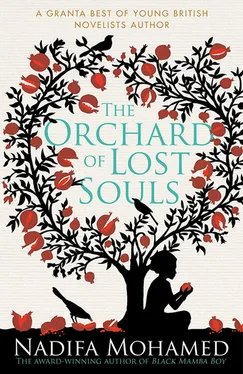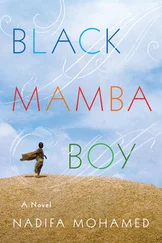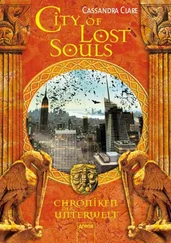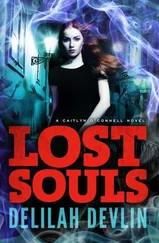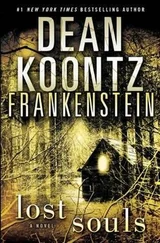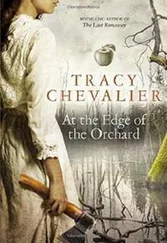‘Just walk, just walk, just walk,’ she mutters.
Beside the wall dividing the main hospital from the psychiatric ward is a tangle of bushes and discarded strips of barbed wire, beyond which is the incinerator block. She checks around her before slipping into a shadow to the side of the concrete cabin; she struggles to climb onto the low roof and over the perimeter wall in her light sandals. Losing her footing, she falls heavily on her back into the road.
The street is empty, the imprint of tank tracks visible like a giant’s footsteps. Filsan dusts herself down and turns east to the neighbourhood she used to patrol with Roble. There are more than fifty checkpoints dotted around the city — she had helped decide the location of each — and even if she manages to avoid them all, there are still mortars, cluster bombs and strafing fighter jets to evade. She catches sight of a crowd of people a few metres ahead, crouched against the hospital wall, a pair of grey trousers visible here, a bold-coloured diric there. She hides and makes certain no soldiers are with them and then advances. The group is motionless and silent; Filsan imagines they are too wounded or fatigued to move any further towards the hospital.
A few more steps and the truth sets in: thirty corpses lie dumped on top of each other, limbs entangled and frozen into grotesque shapes. Some have fresh blood on their skin while others are already discoloured and swollen: bulging thighs, purple faces, taut, shiny skin where shirts gape open. All have multiple bullet wounds, apart from one man whose throat is cut wide open, the rigid architecture of his neck bisected and revealed.
Filsan shields her nose against the smell and the ecstatic flies. She stares at one face for a moment and then another until she recognises the family she stopped at the checkpoint; all of them are here now, the limping mother, the three little girls, the adolescent boy with his over-burdened handcart, and the sharp-chinned young woman leading them all. Filsan tries to remember her name. Luul? Nura? The woman’s eyes are still open, her head thrown back in shock, her arms reaching out to her sisters. It seems from the spray of blood on the wall that they were executed here. Filsan does not feel guilt or remorse as she gazes over the bodies, rather an insatiable curiosity and desire to know when and where her own death will come and what expression she will wear to meet it. She has never been like other people, and the corpses confirm that she has no useful place on this earth; she is doomed to be nothing more than one of death’s handmaidens.
She checks the sky for planes and listens for tanks. All is quiet. She turns down a narrow alley littered with animal droppings and follows it through to the next alley and then the next.
‘Why did you leave me?’ Kawsar asks after staring at Deqo for a long time.
Deqo chews her upper lip, looking down guiltily; she remembers that day at the stadium in snatches, no thoughts or feelings, just momentary images of dancing, then blows, then the wind in her hair as she ran away.
‘I don’t know, I was frightened.’
‘Didn’t I look after you well?’
Deqo nods.
‘Was there anything more I could have done?’
Deqo shakes her head.
Kawsar exhales loudly and her eyes slowly fill with tears. ‘I have missed you so much.’
Deqo pads over to her bedside and wipes the tears away ‘I’m sorry,’ she whispers, delighted to have made such a deep impression on the old woman.
‘You left me with nothing but an empty heart,’ Kawsar sobs. ‘It’s too late to soothe me now.’
Deqo continues stroking her cheek. ‘It’s not too late, I can help you. I will get you out of here.’
In a few hours Deqo has removed the dirty sheets from the bed, fed Kawsar a can of tuna and rubbed a wet towel over her face and arms. Caring for her has distanced the war from Deqo’s mind.
‘It’s too late,’ Kawsar repeats over and over, crying bitterly.
Deqo leans against the bed and waits for the tears to pass, knowing that they always do. She learnt that from Nurse Doreen in Saba’ad: as rainstorms come quick and heavy before leaving a clear sky, so do tears.
Kawsar’s sobs ebb and then stop; her reddened and contorted face seems child-like, filled with perplexing thoughts.
Deqo looks away shyly while Kawsar slowly composes herself. She sits cross-legged beneath the bed and pats the tight, stinging plaits on her head. ‘I want to take you back with me to Saba’ad.’
Silence.
‘We will be safe there, everyone will think you’re my grandmother. Nurse Doreen will help you.’
No response.
Deqo turns her head and sees Kawsar’s eyes closed. Leaping up she puts her ear to her mouth and feels a warm stream of breath on her skin.
‘Sleep then,’ she pats the liver-sported hand.
Restless, Deqo watches out of a window that has a fine crack running diagonally from one corner to another; all it would take is a light press and the glass would snap in two. She sees the wind stirring the strands of a miri-miri tree and wants to feel that breeze on her face.
Stepping out into the street she turns right, away from the direction she came. Three dead bodies spoil the peaceful scene; the miri-miri and bougainvillea and juniper cannot cover the scent of their decomposition. She unties a goat that has been left tethered to a pole and the creature slumps to its knees in exhaustion, looking up at Deqo with terrified, wide eyes. She walks away, leaving it to its own fate. The local dukaan has been ripped open and looted, dented cans of condensed milk and kidney beans embedded in the sand. Deqo steps in and discovers the shopkeeper’s bloodied body behind the counter, a prayer cap on his head and a handful of worthless military chits clamped between his fingers. She picks through the goods on the ground and gathers bags of sweets, bottled drinks and potato chips in her skirt.
Lost, parched, Filsan tilts her head against the smoke-blackened wall and pants long, ragged breaths. She staggers out into the street and into view of a checkpoint. Their guns swivel over to her and she raises her hands in defeat. There is still about ten metres between them and Filsan thinks through what is about to unfold: one of them will recognise her and radio through that they have caught a deserter; if she is lucky they will send her to a southern jail, if not she will be executed in Birjeeh. Rejecting either possibility, she dashes into a dark alley and sprints as fast as she can, her pain momentarily lifted by the adrenaline pumping through her veins. The soldiers chase but don’t shoot, probably too young and still frightened of their weapons; they are gaining on her and she turns back to see one just five metres behind. She ducks into the tiny space between two buildings and then cuts through into another alley; she races to the rectangle of bright light at its mouth and is spat out into a familiar road. Hearing the soldier’s boots at her back, she continues as far as she can before collapsing behind the corrugated tin wall of a dukaan. A face appears in a crack in the metal and a refugee girl with a collection of looted items in her arms blinks at her. Filsan turns her back and wishes her away.
‘Hey yaari ! Where did that woman run to?’ a soldier shouts.
Filsan holds her breath.
‘She went up there,’ the little girl says.
‘Where? Show me.’
She clomps forward. ‘Around that corner, you see?’
‘Comrades, follow me,’ he yells behind him and then their army boots bolt away.
The long-lashed eye appears back at the crack. ‘They’ve gone.’
She gestures for Filsan to follow and leads her to the safety of a small, blue bungalow.
An old woman is buried within the sheets of the bed, the lower part of her face covered by a blanket. A smell rises from her that makes Filsan gag.
Читать дальше
